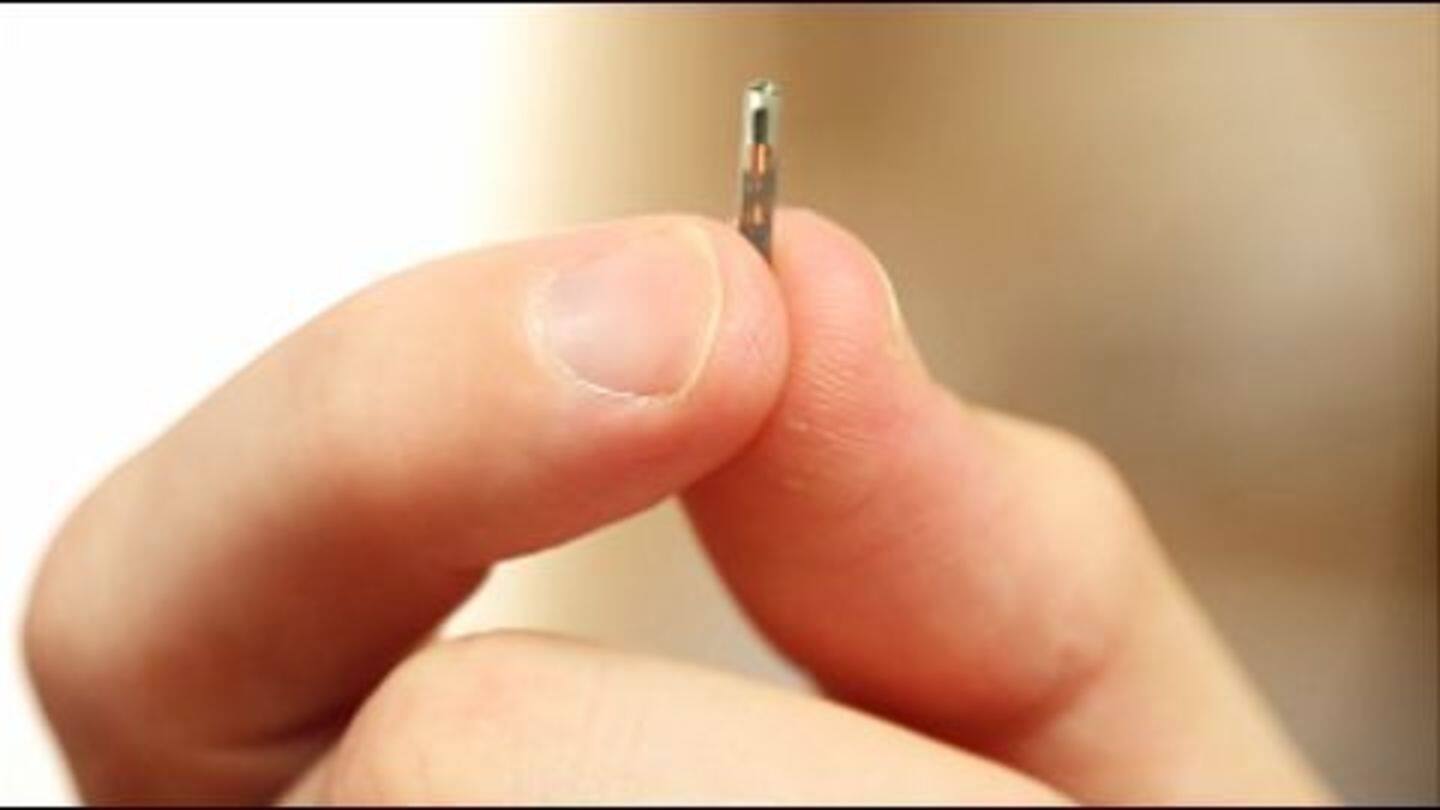
This American company embeds chips in employees to track them
What's the story
It is not uncommon for employers to compete in order to provide various perks and lure employees, but one US-based company is now offering $300-worth "free microchipping" to its employees. Tech firm Three Square Market in Wisconsin would soon embed rice grain-sized RFID chips in its workers' bodies; however, it is optional. What is the reason behind the microchipping? Find out!
Three Square Market
First American company to implant microchips to employees
Three Square Market is installing the RFID (radio-frequency identification) chips in its employees to eliminate the need for key-cards. Microchipping would enable employees just to swipe their hands to enter the office, log in to computers, open doors and even pay for food in the cafeteria. A majority of the workers have volunteered to get the microchip embedded in their bodies.
Quote
Three Square Market CEO Todd Westby's statement
"We see chip technology as the next evolution in payment systems, much like micro markets have steadily replaced vending machines. As a leader in micro market technology, it is important that 32M (Three Square Market) continues leading the way with advancements such as chip implants."
Employee Movements
RFID chips to be implanted on 1 August
Todd Westby said the microchip only feels like a needle while being embedded and like a sliver when coming out. He also added the microchips would not be used to track employees and that cell phones do 100 times more data reporting than RFID chips. The company has become popular over the last decade for using innovative gadgets and software.
Information
The first company to install microchips in employees
On 3 Apr'17, Swedish firm Epicenter became the world's first company to implant microchips into employees. It said the reason behind the move is to provide convenience to workers so that they can just wave their hand to mimic the function of swipe cards.
RFID tags
What are RFID chips?
RFID technology uses electromagnetic fields for identifying the tags/chips embedded in objects that contain information. Simply put they are smarter bar codes used for verifying and identifying electronically stored information. They don't transmit location as smartphones do, but they can track the movement of objects using RFID scanners. The US's Food and Drug Administration approved the use of RFID tags in healthcare in 2004.
Employees' Privacy
How employers spy on their employees
RFID chips could be one of the many ways employers use for tracking employee movements. Other ways to keep tabs on employee movements include company badges that secretly collect data about employees' communication, software that spy on workers looking for jobs, light-bulbs that track their movements, etc. As microchipping of employees is becoming more prevalent, questions about their privacy are being raised.